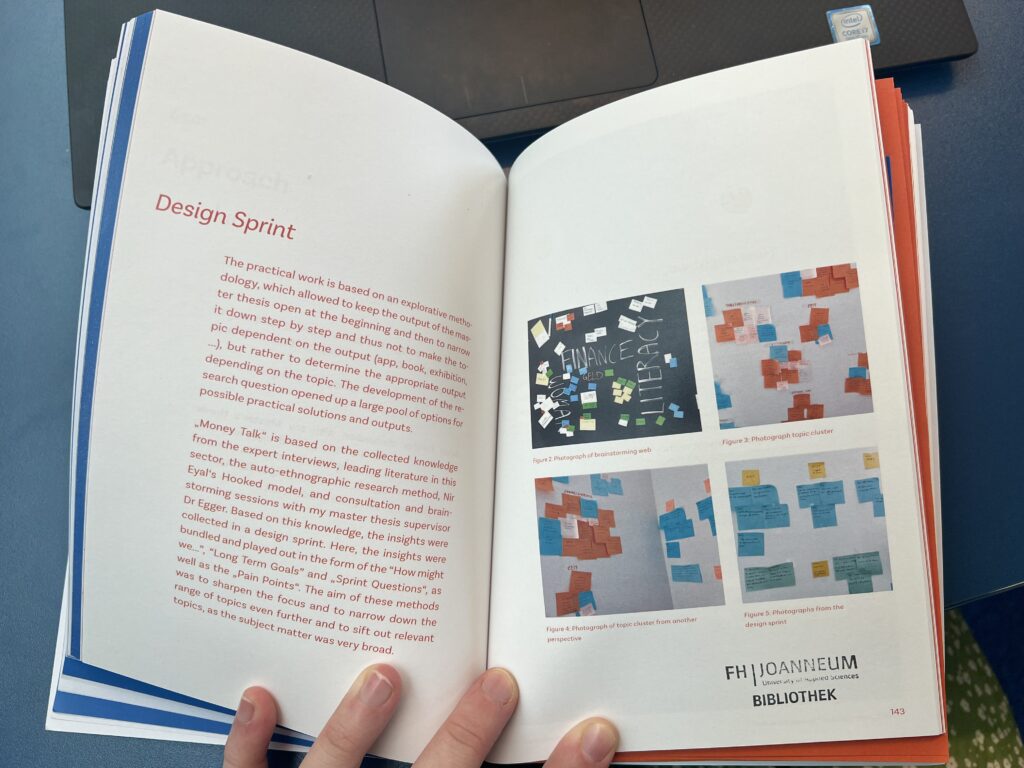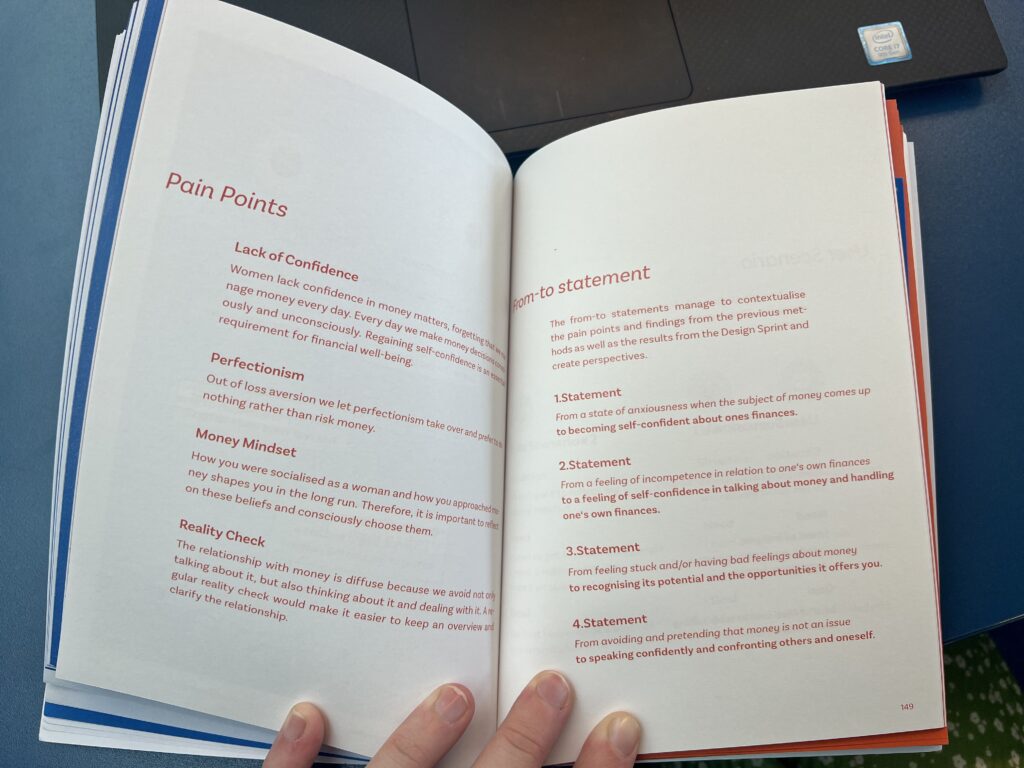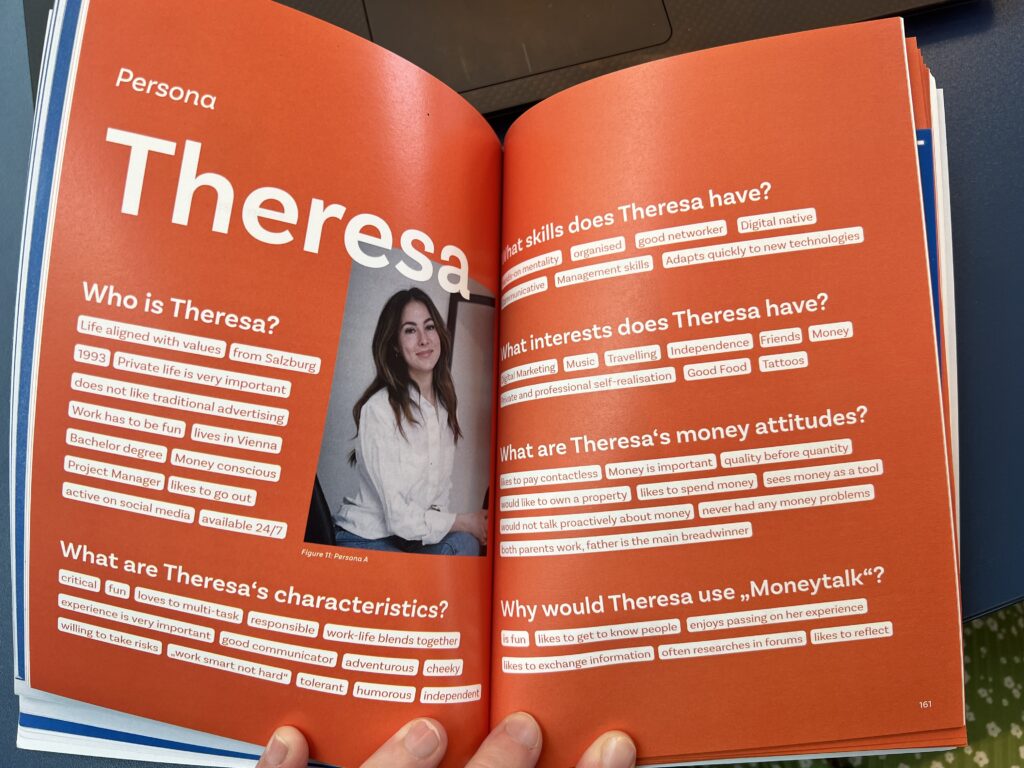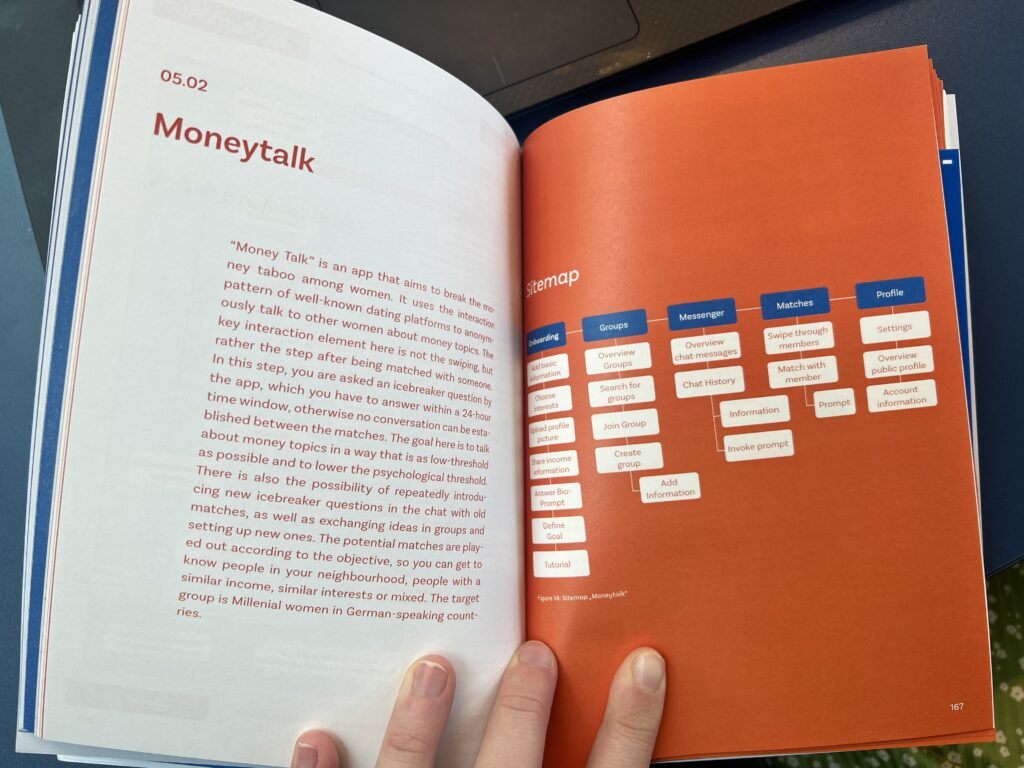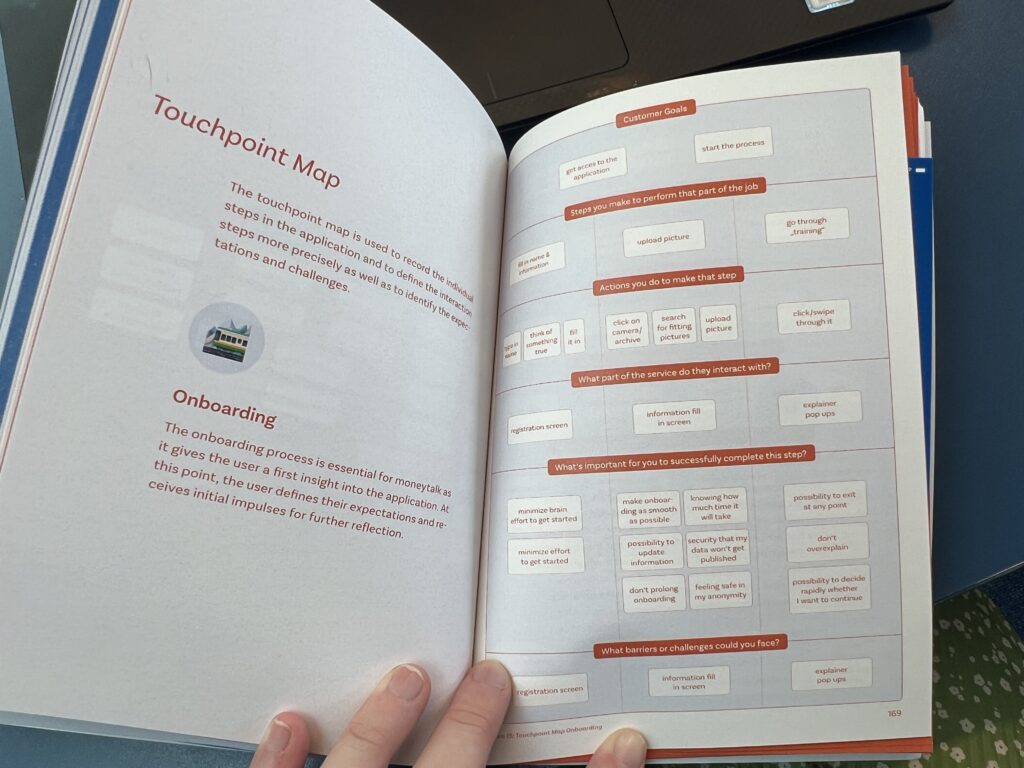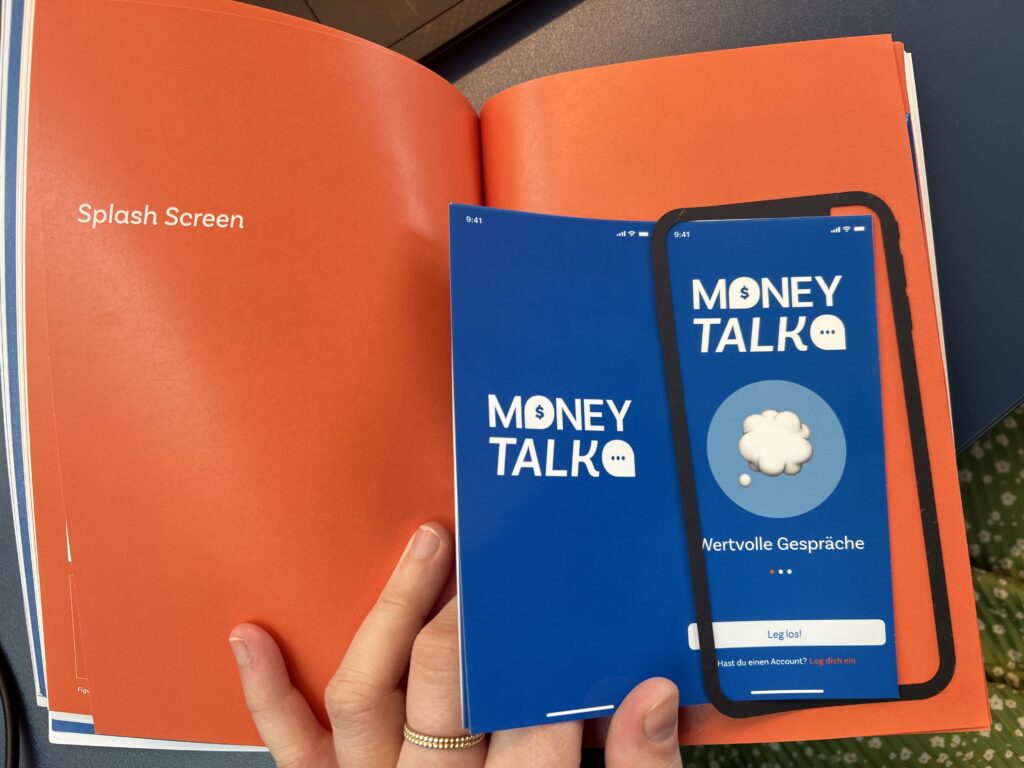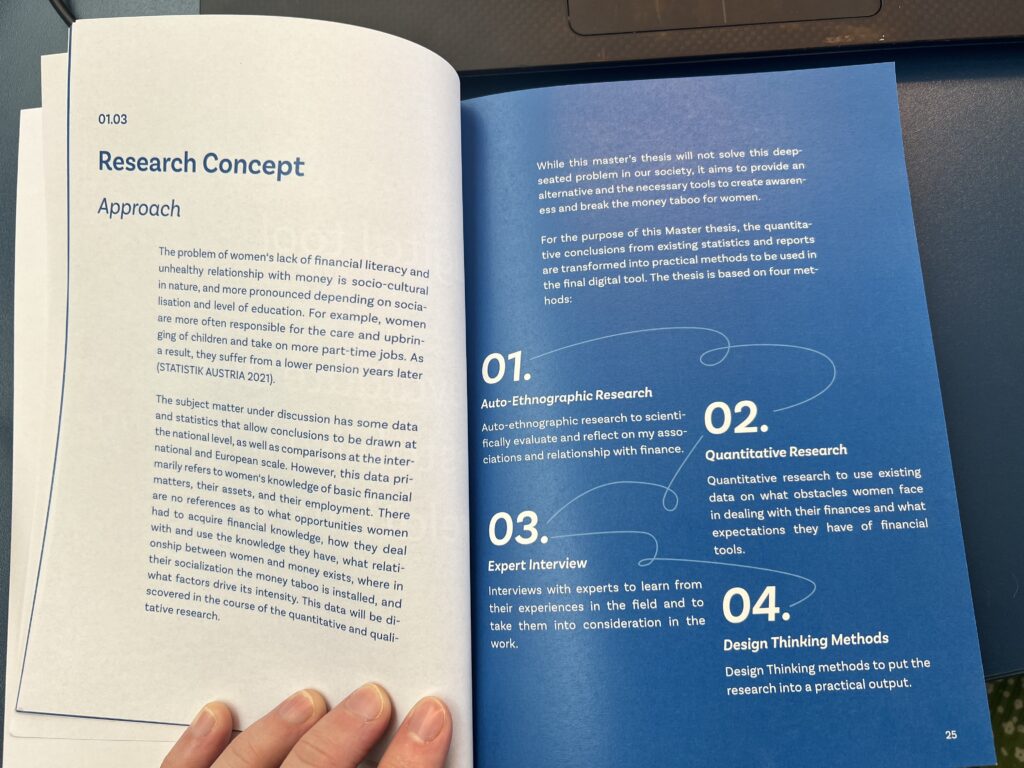In preparation for writing the master’s thesis next semester, we were asked to review a completed thesis from a past year. I took a look at Money Talk by Ines Mahmoud, and found a lot of inspiration for my own work in the content, structure, and heart of the thesis.
Money Talk analyzes the issue of the financial knowledge disparity between men and women and proposes an intervention in the form of an app. The thesis is broken down into 5 parts, plus the conclusion and reference list. The introduction includes the relevance of research, problem statement, state of research, goal & hypothesis, and approach. The main body of research is titled “Money, Money, Money”, and highlights various belief systems around money, money as a taboo topic, psychological phenomena such as human-money interaction, mental accounting, and materiality of money, and finally the relationship between women, finances, and money, including topics such as pensions, part-time and care work.
The third section is dedicated to expert interviews. The author first interviews Nicole Katsioulis, a political foundation employee and founder of blog “Geldmarie”, which empowers women to understand finances and become financially independent, sustainable investors. Nina von Gayl, the third interviewee, is the curator for Erste Group’s Financial Life Park, and the third interviewee, Maria Mann, is the CEO of a Munich-based start-up called Financery, a “pragmatic tool for women to invest and grow their wealth”.
Following the interviews, the author titles the fourth section “Auto-Ethnographic Observations”, where she dives into her own thoughts, feelings, perceptions, and histories around money and financial management. I found this section particularly interesting because of the method’s inherent bias, which the author addresses on the first page with the following quotes: “Authoethnography is a set of research that seeks to describe and systematically analyse (grafie) personal experience (auto) in order to understand cultural experience (ethno)” (Ellis 2004; Holman Jones 2005). “It challenges canonical practices of conducting and presenting research (Spry 2001) and treats research as a political and social act” (Adams & Holman Jones 2008). I am interested in looking further into this unfamiliar and seemingly unorthodox research method, as I greatly admire the “human-ness” it brings to the work.
The fifth section of the thesis is dedicated to the practical work, where Mahmoud details her process designing the app, Money Talk, and presents the outcome in a creative and engaging format, utilizing cutouts to showcase the screen design. In this section, Mahmoud details each step of the design process, and walks the reader through every consideration of the screen designs, resulting in a complete and comprehensive analysis.
I really enjoyed sifting through Money Talk. I found myself greatly inspired by the content, structure, and heart of this thesis, and already plan to reference it later on as I continue developing my own thesis. I found Mahmoud’s approach extremely well-organized and thoughtful. Stylistically, the work was beautifully presented, readable but also fun and engaging. The inclusion of research, expert interviews, and practical components was a winning combination in my view, and a format I would consider emulating, or being inspired by, for my own work.
